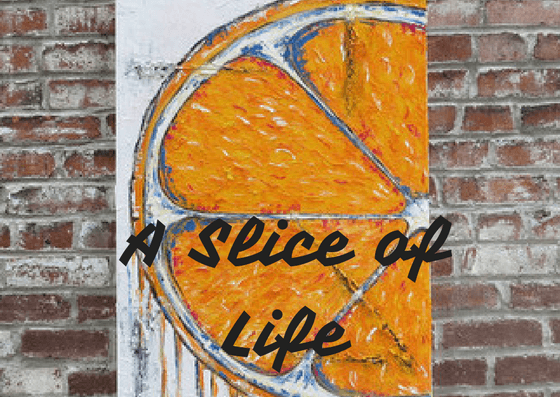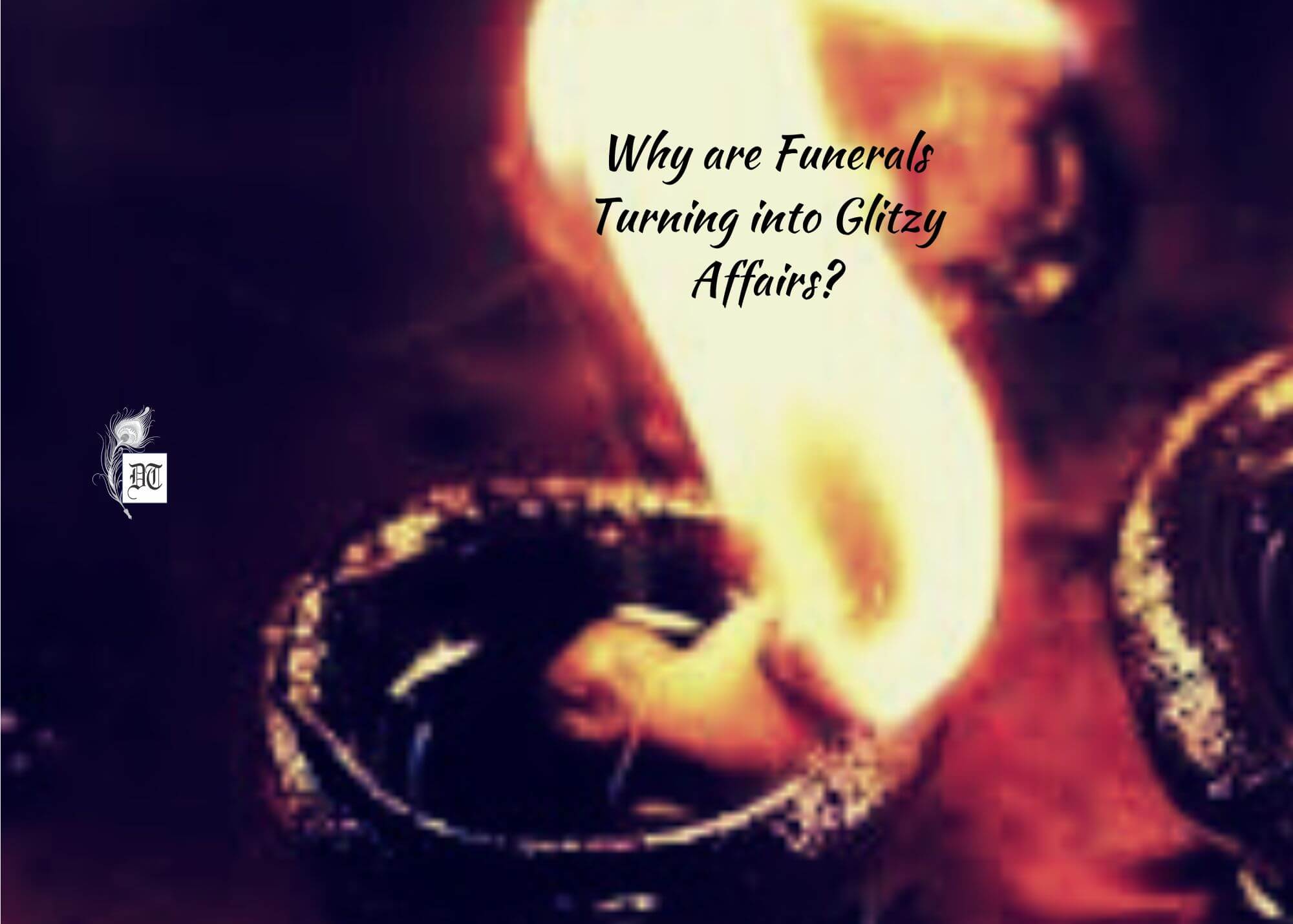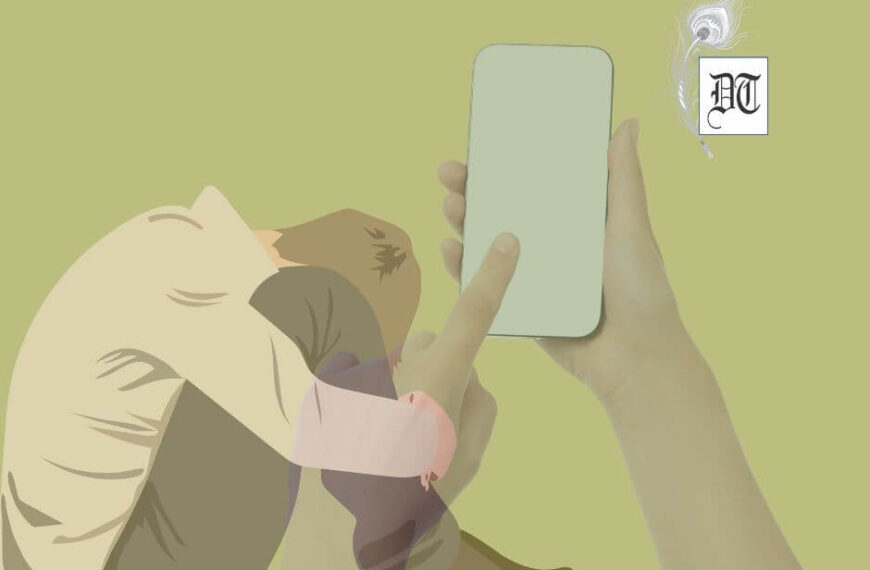Ruchira rues that funerals are becoming extravagant social gatherings, focusing on wealth and catering services—a gross affair exclusively for Different Truths.

Funerals have been part and parcel of human society since the dawn of civilisation. The underlying idea is to bid an expansive farewell to the dearly departed after the primary task of disposing of the dead (cremation, burial, or other) is over.
A few years ago, I was part of an editorial team that compiled and finally published an Encyclopedia of Holidays of the World. Apart from copious information on national public and religious holidays it also encompassed exhaustive information on rites of passage, rituals customs and regional and local traditions It was interesting to discover how, in bygone ages, funeral ceremonies of common people—cutting across all religious faiths and no matter in which part of the earth they inhabited—were sober, solemn, emotionally charged affairs comprising peace prayers, chanting of hymns, floral and musical tributes, and were (almost always) rounded off with a community meal.
As a matter of principle, I avoid attending funerals.
As a matter of principle, I avoid attending funerals. In my entire lifetime, I have been to only three or four such gatherings, merely out of social obligation. Memories of the ‘dead’ come flooding back, leaving me tearful and depressed.
But from what I observe, read, or hear, from the original low-key homely affairs, funerals are transmogrifying into social get-togethers and feasts. Religious fervour and the mourning ‘ambience’ appear to be missing. Hi-fi catering services are vying with one another, drawing up eye-catching yet paisa vasool menus for the ‘bereaved ‘clients.
Have you ever wondered why? Well, money is strongly emerging as a powerful player in our personal and social lives today.
The maxim of “simple living and high thinking” is more honoured in the breach than in observance. These days, money is a major factor in our personal and social lives. Affluent, resourceful, and upwardly mobile people are perpetually exploring avenues to display (read, advertise) their financial status. Why not? After all, it was their hard work and entrepreneurship (with a smattering of luck or good fortune) that did the trick. Wasn’t it?
This train of thought is possibly the genesis of the “show off” syndrome so rampant in our contemporary society.
This train of thought is possibly the genesis of the “show-off” syndrome so rampant in our contemporary society. Showing off in terms of material assets, property, haute fashion, housewarmings, wedding anniversaries, and celebrating kids’ rites of passage, viz., birthdays, annaprasan, namkaran, mundan, and upanayana, is logical and hence acceptable. But show off by way of funerals? Nah! I would call it gross. Pretty inhuman.
Mrs. Bhattacharya, a kindly old lady who lives in our apartment block, remembers recoiling with horror upon witnessing a live DJ performance at a funeral to which she had been invited.
My late father-in-law often recounted how he had a squabble with an invitee (who was his cousin) who complained of the nine-not-enough items at the former’s father’s funeral ‘banquet.’
Mrs Nair, an octogenarian who resides on the floor above us, reminisces: ‘I was shell-shocked when, after my father’s and my husband’s deaths, the bachhalog (her children) and close relatives had come up with detailed video recordings of their respective final journeys—from home to funeral pyre and after—which went viral in family WhatsApp groups. It’s nothing but an exercise in futility.” she concludes.
I am reminded of the grandiose funeral ceremony of a paternal aunt more than a decade ago. In a brazen show of opulence, her daughters offered lavish gifts to the departed soul—gorgeous silk saris, a pure gold jewellery item, exotic perfumes, expensive leather footwear, a high-quality single cot (bedding included), and much more similar stuff, which I forget now—which eventually were included in the priests’ remuneration-cum-return gift hampers! Like me, many of the guests appeared dumbfounded.
The folks of Uttarakhand have this quaint custom called Brahama Bhoj, which I find rather bizarre.
The folks of Uttarakhand have this quaint custom called Brahama Bhoj, which I find rather bizarre. All the prayers, rites, and formalities are confined to family members alone. Relatives, friends, and acquaintances are invited to community meals, which, though strictly vegetarian, are fairly lavish in tone. The meal is over, and as the guests get ready to depart, the hosts gift them tiny sums of money as a token of gratitude! I can’t fathom the significance of this ritual in my life.
I am tempted to narrate yet another mind-blowing funeral-linked anecdote, which surely will leave the readers gaping.
Five years ago, a second cousin of mine, an American desi, and radiologist by profession, suddenly died of a heart attack. His wife was distraught with grief. Nevertheless, she bounced back, determined to observe his demise as a “celebration of his young life.”
Dada’s ‘body’ was purified and medically preserved for an entire week. Through a steady flow of updates and images in my WhatsApp inbox, we watched him lay peacefully in a polished wooden casket (its lid open), clad in a resplendent silk kurta pajama. It was an uncanny reminder of the ‘mummy’ of Tutankhamun, the legendary Egyptian Pharaoh, for he too had died an untimely death. There was a steady stream of visitors who came to condole and offer their last tributes. The cremation went off peacefully. However, that was not the end of it. Two years ago, she landed in her native Kolkata with her children in tow. There she hosted a memorial service with food and devotional music, along with an audio-visual show on the doctor’s illustrious life.
People might be livid with rage upon hearing my views. But I couldn’t care less.
People might be livid with rage upon hearing my views. But I couldn’t care less. I wish to shout out to such mourners: If you wish to splurge to perpetuate your loved ones’ memories, do it in a saner way. Plant a tree. Donate to the Red Cross, Cancer research institutes, orphanages, and other charitable institutions. This would be a meaningful way to pay tribute to the departed souls.
Picture design by Anumita Roy






 By
By
 By
By
 By
By
 By
By